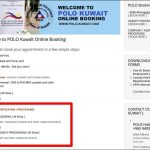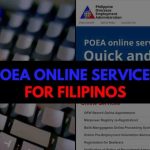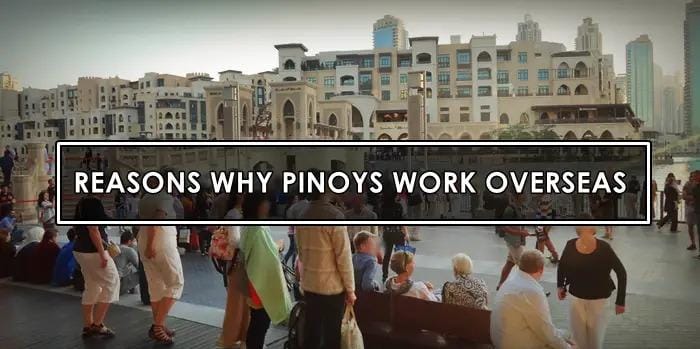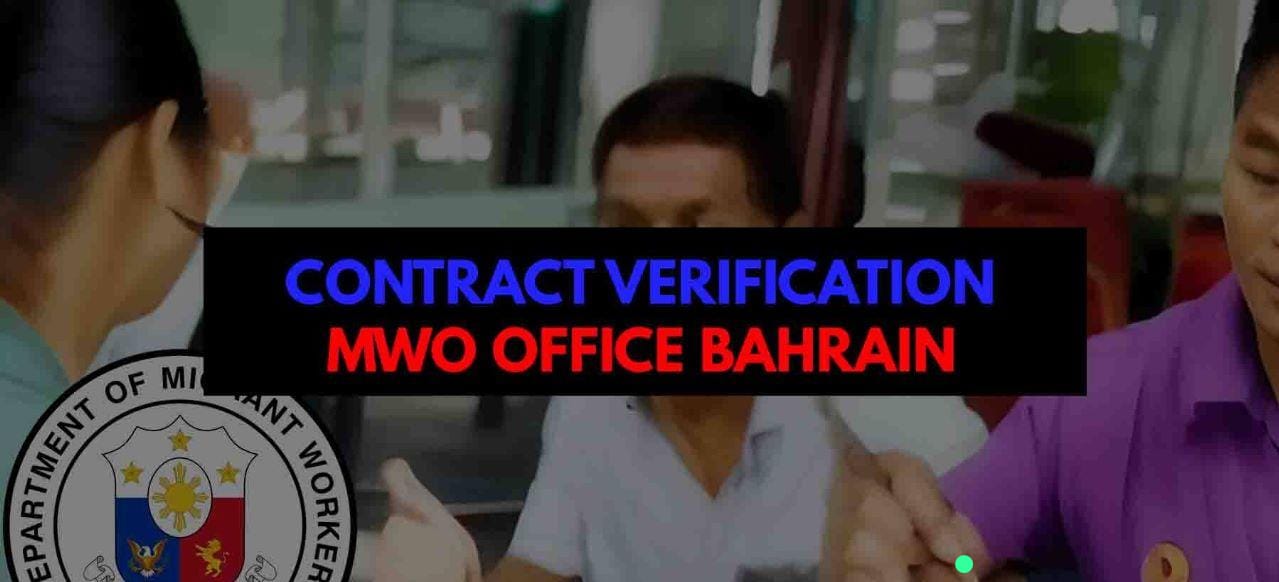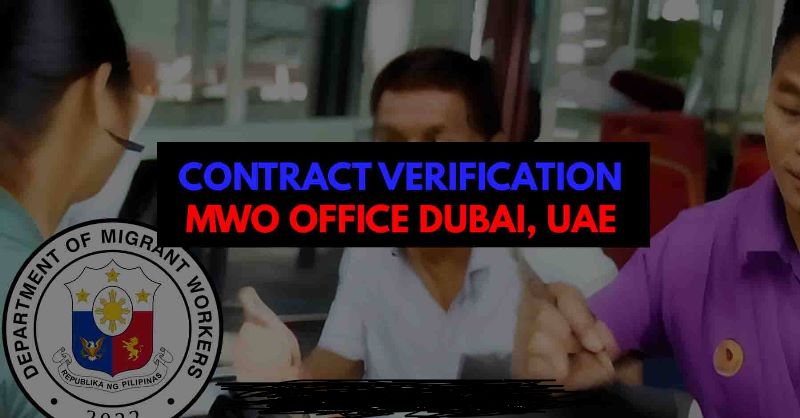Regardless of your location around the world, you are likely to encounter hard-working Overseas Filipino Workers (OFWs) whom you can depend on. OFWs are renowned for their commitment to work and admirable qualities, which are highly valued by other nationalities. However, beneath their unwavering determination, there are numerous reasons why many Filipinos choose to leave their homeland and seek employment overseas. Often referred to as modern-day heroes, OFWs also contribute to the improvement of the Philippine economy through the monthly remittances they send to their families back home.Understanding the Key Factors That Drive Filipinos to Work Overseas and Become OFWs
Nevertheless, working abroad is not always a smooth journey, and some individuals may face unfortunate circumstances. Being an OFW entails risks as one has to work and live in an unfamiliar environment with distinct cultures and norms. Despite these challenges, why do Filipinos still aspire to work overseas and become OFWs? To uncover the answers, continue reading as we delve into the primary reasons why many Filipinos aspire to work abroad, based on the experiences of other OFWs.”
Higher Income Opportunities: Many Filipinos choose to work abroad because they can earn higher salaries compared to what they could earn in the Philippines. The income disparity between developed countries and the Philippines is significant, and working overseas provides an opportunity for better financial stability and improved living conditions.
- Economic Stability: Working abroad offers a chance to escape the economic uncertainties and instability in the Philippines. Overseas Filipino workers (OFWs) often seek more stable economies with better job prospects and long-term employment opportunities.
- Better Job Opportunities: Some Filipinos seek overseas employment to access a wider range of job opportunities that may not be available or accessible in their home country. This is particularly true for specialized professions or industries where there is high demand in foreign markets.
- Education and Skill Enhancement: Working abroad can provide access to better educational opportunities and skill enhancement programs, particularly in countries with advanced education systems. OFWs may gain new skills, experiences, and qualifications that can enhance their future career prospects.
- Escape from Poverty: Poverty is a significant factor that drives many Filipinos to seek employment overseas. By working abroad, individuals can escape the cycle of poverty, support their families financially, and provide a better future for their children.
- Debt Repayment: Some Filipinos may choose to work overseas to repay debts or financial obligations incurred in their home country. The higher income they earn abroad enables them to settle debts more quickly and alleviate financial burdens.
- Personal Development: Working abroad provides opportunities for personal growth, cultural immersion, and exposure to different ways of life. OFWs often gain a broader perspective, develop independence, and acquire valuable life skills through their experiences abroad.
- Support for Family: The strong sense of familial responsibility is a significant motivation for Filipinos to work overseas. Many OFWs choose to sacrifice being away from their loved ones to financially support their families back home, ensuring their basic needs, education, healthcare, and a better quality of life.
- Global Connections: Overseas work offers the chance to build networks and connections with people from various nationalities and cultures. These connections can be valuable for future career opportunities or business ventures.
- Long-Term Goals: Some Filipinos choose to work abroad temporarily to save money and eventually return to the Philippines to start their own businesses or invest in income-generating opportunities. Overseas employment can serve as a stepping stone towards achieving long-term goals.
It’s important to note that while there are benefits to working overseas, there are also challenges and risks involved, including homesickness, separation from family, cultural adjustment, exploitation, and legal issues. It’s essential for individuals considering overseas employment to carefully weigh the pros and cons and make informed decisions.

More Career Opportunities
It is true that many Filipinos choose to work abroad primarily because of the abundance of career opportunities in foreign countries. While there are career opportunities available in the Philippines, the number of job openings can sometimes be limited compared to other nations.
One of the main reasons for the availability of more job openings in foreign countries is the difference in economic development and industry demands. Some countries may have a stronger economy, higher investment levels, or specific industries that require more workers. This can create a higher demand for professionals in various fields, leading to more job opportunities for individuals seeking employment abroad.
Certain occupations, such as welders, domestic helpers, and housekeeping-related jobs, are particularly in demand in some foreign countries. These jobs may offer better pay and benefits compared to similar positions in the Philippines. Therefore, individuals with skills and qualifications in these specific fields may find more opportunities and financial stability by pursuing such careers overseas.
However, it’s important to note that the decision to work abroad is influenced by a variety of factors, including economic conditions, personal circumstances, and individual aspirations. While career opportunities and job openings play a significant role, other factors like higher wages, better work-life balance, access to quality education for dependents, and the desire to gain international experience may also contribute to the decision to seek employment outside the Philippines.
It is essential to consider both the advantages and challenges of working abroad, such as being away from family and adapting to a new culture. Ultimately, the decision to work overseas should be based on careful consideration of individual goals, values, and circumstances

Better Salary and Benefits
Working overseas as an Overseas Filipino Worker (OFW) can indeed offer better salaries and benefits compared to working in the Philippines. Many Filipinos choose to become OFWs primarily because of the higher earning potential and the opportunity to improve their financial situation. Here are some reasons why Filipinos seek employment abroad:
- Higher Salaries: One of the main reasons Filipinos work overseas is the prospect of earning significantly higher salaries than they would in the Philippines. Countries with strong economies often offer better-paying jobs and provide opportunities for career growth and higher income.
- Better Benefits: Foreign employers and companies often provide attractive benefits packages to attract and retain skilled workers. These benefits may include health insurance, housing allowances, education allowances for children, retirement plans, and other perks that may not be as comprehensive or readily available in the Philippines.
- Currency Exchange Rates: The exchange rate between the Philippine Peso (PHP) and foreign currencies can work in favor of OFWs. When they send money back home, the converted amount in Philippine Pesos can provide a higher purchasing power, which can significantly improve their families’ living standards.
- Job Security: In some cases, working overseas can offer greater job security compared to the fluctuating job market in the Philippines. OFWs often find stable employment contracts, which provide a sense of financial stability and assurance for their families.
- Professional Development and Exposure: Working abroad can provide Filipinos with valuable professional experience, skills development, and exposure to international work environments. This experience can enhance their career prospects and increase their marketability when they eventually return to the Philippines.
However, it’s important to note that working overseas also comes with challenges and sacrifices. OFWs may face separation from their families, cultural adjustments, language barriers, and other difficulties associated with living and working in a foreign country. It’s crucial for individuals considering overseas employment to weigh the pros and cons and make informed decisions based on their personal circumstances and priorities.
Renewable Contracts
Yes, it is true that many overseas Filipino workers (OFWs) initially start their employment abroad on contractual terms. Contractual employment is a common practice in many countries, and it provides an opportunity for individuals to gain international work experience and earn income to support their families.
While starting as a contractual employee, OFWs have the option to renew their contracts with the same employer or explore opportunities with different employers. In some cases, if an OFW has worked for the same employer for a considerable period and has proven their skills and commitment, they may be offered a regular job with better employment benefits.
Additionally, OFWs can actively search for other employers who offer better pay, benefits, or working conditions before their contract expires. They can network, research job opportunities, and even use online platforms to find potential employers who might offer more favorable terms. By being proactive and continuously improving their skills and qualifications, OFWs can increase their employability and open up various employment opportunities abroad.
It is important to note that employment chances overseas are not guaranteed, and the availability of jobs and the specific requirements may vary depending on the country, industry, and individual circumstances. However, being adaptable, proactive, and constantly improving one’s skills can enhance the prospects of securing better employment opportunities abroad.
Less Strict Job Qualifications
The job market in the Philippines is indeed competitive, and many large companies place importance on education, experience, and other qualifications when hiring potential candidates. Having a college diploma and several years of experience can improve one’s chances of securing a job with these companies. However, it is important to note that the job market is diverse, and there are opportunities available for individuals without extensive qualifications as well.
For those who do not meet the stringent requirements set by large companies, finding a job with decent pay can be challenging. As a result, many Filipinos choose to work overseas where the requirements may not be as strict. Foreign employers often have different standards and may be more willing to hire individuals with less experience or qualifications.
Working abroad can provide opportunities for Filipinos to earn a reasonable income, even with limited work experience. It allows them to gain new skills, experiences, and exposure to different cultures. Additionally, the remittances sent back home by overseas Filipino workers contribute significantly to the country’s economy.
However, it is worth mentioning that there are also job opportunities within the Philippines that provide reasonable pay and benefits, even for individuals with less experience. The availability of such opportunities can vary depending on the industry, location, and individual circumstances.
Overall, while the strict requirements set by some large companies in the Philippines can make it challenging for individuals without extensive qualifications, there are still various paths to finding suitable employment, both domestically and abroad.

Application Discrimination
Discrimination in various sectors is an unfortunate reality in many parts of the world, including the Philippines. It can create barriers for individuals seeking employment and force them to consider working abroad as an alternative. While the country is progressing towards becoming a more open society, certain challenges still persist.
One issue is the prevalence of nepotism and favoritism in the hiring process. Some local employers may prioritize candidates with connections or outstanding credentials, overlooking qualified applicants who lack these advantages. This practice can prevent deserving individuals from accessing job opportunities and perpetuate inequality in the workforce.
Additionally, discrimination based on physical appearance is another concern. Some applicants may face bias or prejudice due to their looks, even if they possess the necessary qualifications and skills for the job. This form of discrimination is unjust and can be demoralizing for those affected.
As a result, many Filipinos seek employment opportunities abroad, where they believe they have a better chance of being hired based on their skills and credentials. Overseas employment can offer a more merit-based system, where qualifications and abilities are given greater consideration.
It’s important to address and combat discrimination in all its forms to create a fair and inclusive society. Efforts should be made to promote equal opportunities and meritocracy, both in the Philippines and globally. By focusing on individuals’ abilities rather than superficial factors, societies can harness the full potential of their diverse talent pool and foster a more equitable and prosperous future for all.
High Unemployment Rate
The high unemployment rate in the Philippines has indeed led many Filipinos to seek job opportunities abroad as Overseas Filipino Workers (OFWs). This trend has been driven by the desire to provide a better life and financial stability for their families. While there are job openings available in the country, many Filipinos face challenges in securing regular employment that offers financially rewarding compensation.
In some cases, skilled workers in the Philippines may find themselves in strenuous jobs that provide minimal wages, which are often insufficient to meet their basic needs. This dissatisfaction with low wages and limited employment opportunities has contributed to the unemployment rate.
There are several factors that contribute to the difficulty in finding well-paying jobs in the country. One factor is the oversupply of skilled workers, which creates a competitive job market. Additionally, the lack of investment in certain industries and sectors, as well as the mismatch between the skills demanded by employers and those possessed by job seekers, further exacerbate the unemployment issue.
To address this problem, the Philippine government has been implementing various initiatives to promote job creation and improve the overall employment situation. These efforts include fostering a favorable business environment, attracting foreign investments, and enhancing skills development programs to bridge the gap between industry requirements and the skills of the workforce.
Additionally, there is ongoing emphasis on improving the local economy and creating more job opportunities within the country. By diversifying industries, promoting entrepreneurship, and investing in infrastructure development, the government aims to create a conducive environment for job growth and reduce the reliance on overseas employment.
While the decision to work abroad as an OFW may provide immediate financial benefits for individuals and their families, it is important to recognize the impact it has on the country’s economy and social fabric. Brain drain, separation of families, and the challenges faced by OFWs in foreign countries are some of the issues that need to be addressed comprehensively to create sustainable employment opportunities within the Philippines.
It is crucial for the government, private sector, and various stakeholders to collaborate in order to develop strategies that promote inclusive growth, job creation, and decent wages. By investing in education, skills training, and infrastructure development, the country can strive towards reducing unemployment, improving the quality of jobs, and creating a better future for its citizens.
Work Experience
Working abroad can indeed provide several advantages when it comes to improving credentials and enhancing employment opportunities. Here are some key points that support the idea:
- Work Experience: Working overseas allows individuals to gain valuable work experience in a different cultural and professional environment. This experience can provide them with a broader perspective, enhanced skills, and a deeper understanding of international business practices.
- Skill Development: Different countries often have unique industry practices and technologies. By working abroad, individuals have the opportunity to learn new skills, acquire specialized knowledge, and become proficient in areas that may not be as prevalent in their home country. This can make them more competitive in the job market and open up new career paths.
- Global Networks: Working abroad enables individuals to expand their professional networks on an international scale. Building connections with professionals from different countries can lead to new career opportunities, collaborations, and partnerships. These global networks can be valuable assets when seeking employment or pursuing entrepreneurial ventures.
- Cultural Adaptability: Living and working in a foreign country requires individuals to adapt to new cultures, customs, and work practices. This develops their cultural adaptability skills, which are highly valued by employers. Being able to navigate diverse environments and communicate effectively with people from different backgrounds is an asset in today’s globalized workforce.
- Demonstrated Initiative and Independence: Working abroad demonstrates a person’s willingness to take on challenges, step out of their comfort zone, and adapt to new situations. Employers often view this experience as a sign of independence, self-reliance, and the ability to work well under diverse conditions.
- Increased Employability: Having international work experience can enhance an individual’s employability both abroad and in their home country. Employers often value candidates with a global mindset, cross-cultural communication skills, and a track record of successful work experience in different contexts.
However, it is important to note that working abroad may also have challenges, such as being away from family and familiar support systems, facing language barriers, and adjusting to new living conditions. It’s crucial to carefully consider these factors and thoroughly research the potential benefits and drawbacks before deciding to work overseas

Chance to Get Residence Permit
Obtaining a residence permit is indeed a significant motivation for many overseas Filipino workers (OFWs) to work abroad. While salary is a primary factor, the opportunity to secure a residence permit offers additional advantages and opportunities. Here are some key points related to the benefits of acquiring a residence permit:
- Stability and Security: Having a residence permit provides a sense of stability and security, as it allows OFWs to legally reside in the host country for an extended period. It eliminates the uncertainty of constantly renewing work permits or facing the risk of deportation.
- Family Reunification: With a residence permit, OFWs may be eligible to bring their family members, such as spouses and children, to join them in the host country. This enables families to live together and enjoy the benefits of a stable and united household.
- Expanded Employment Opportunities: A residence permit often provides OFWs with greater flexibility in choosing their employment. They can explore various job opportunities within the host country, beyond their initial employment contract, without the constraints of limited work permits.
- Access to Social Services: Holding a residence permit allows OFWs to access social services and benefits offered by the host country. These services may include healthcare, education, social welfare, and retirement benefits, which can contribute to a better quality of life for OFWs and their families.
- Enhanced Mobility: Once granted a residence permit, OFWs usually experience greater ease in traveling to and from the host country. They can exit and enter more freely, without the need to obtain visas or go through complex immigration processes repeatedly.
- Integration and Cultural Immersion: Obtaining a residence permit allows OFWs to immerse themselves in the culture and society of the host country. They can participate more actively in local communities, develop social connections, and gain a deeper understanding of the country they are living in.
It’s important to note that the requirements and processes for obtaining a residence permit vary across countries, and not all OFWs may be eligible for permanent residency. The length of continuous work, specific skills, education, and other factors may influence the likelihood of obtaining a residence permit. It is advisable for OFWs to familiarize themselves with the immigration policies of the host country and seek guidance from relevant authorities or legal professionals to navigate the process successfully.
Access to Varying Benefits
That’s correct! Filipino overseas workers, commonly known as OFWs, have access to various benefits and support from government agencies in the Philippines, such as the Overseas Workers Welfare Administration (OWWA). The OWWA provides a range of services and programs to assist OFWs and their families.
Some of the services offered by OWWA include educational scholarships for dependents of OFWs, medical and health care assistance, livelihood programs, legal assistance, and repatriation assistance during emergencies or crisis situations. They also provide reintegration programs and assistance to help OFWs transition back to life in the Philippines after their overseas employment.
In addition to the benefits provided by the OWWA, OFWs who obtain resident permits or become residents in the country where they work can access additional privileges and benefits for resident expatriates. These benefits may vary depending on the country of residence and can include access to healthcare, education, social security, and other government services.
It’s important for OFWs to be aware of the benefits and support available to them both in the Philippines through agencies like the OWWA and in their country of residence. They can seek information and guidance from the Philippine embassy or consulate in their host country to learn more about the specific benefits and programs available to them as resident expatriates.
Opportunity to Bring their Families Abroad
Yes, many overseas Filipino workers (OFWs) have the opportunity to bring their families abroad to live with them permanently. This is often a long-term goal for OFWs, and they typically go through a process that involves working and living alone in a foreign country before being able to sponsor their families.
Initially, OFWs leave their families behind in the Philippines and work overseas to provide financial support for them. They endure periods of homesickness and sacrifice as they strive to secure a stable income and improve their family’s quality of life. It can be challenging to be away from loved ones for extended periods, but the hope of eventually reuniting with their families keeps them motivated.
Over time, as they establish themselves abroad and meet the necessary requirements, OFWs can apply to bring their spouse and children to live with them. This process involves obtaining the appropriate visas, fulfilling financial obligations, and meeting the immigration criteria of the host country. It may take several years of hard work and perseverance before OFWs can successfully sponsor their families to join them abroad.
Once the families are reunited, it is indeed a rewarding experience for OFWs. They get to live together and enjoy the benefits of being together in a foreign land. The sacrifices made by the OFWs are often justified by the improved quality of life and better opportunities that their families can have overseas. They can provide their children with access to better education, healthcare, and overall stability.
Bringing their families abroad also provides OFWs with emotional fulfillment and alleviates the loneliness they may have felt during their time away. Being able to share their new life, experiences, and successes with their loved ones strengthens the bond within the family and enhances their overall well-being.
However, it’s important to note that the decision to permanently move abroad and bring one’s family along is a personal choice. While there are benefits, such as improved financial stability and opportunities, there may also be challenges and adjustments to a new culture, lifestyle, and environment.
Each OFW’s journey is unique, and their experiences may vary. However, the desire to create a better future for their families and provide them with a brighter life is a common motivation for many OFWs who choose to bring their families to live with them abroad.
Dependents Benefits
Becoming an overseas Filipino worker (OFW) can indeed provide various benefits for their dependents back in the country. Whether an OFW is single or married, they can access different programs and services to support their families. Let’s explore some of these benefits:
- OWWA Membership: OFWs who become members of the Overseas Workers Welfare Administration (OWWA) can avail themselves of several benefits for their dependents. These include scholarship grants for their children, which can help provide educational opportunities and support their future. OWWA also offers livelihood assistance programs that can help the dependents start their own businesses or engage in income-generating activities.
- Free Education Overseas: Dependents of resident ex-pats (foreign nationals residing overseas) may have access to free education in their host countries. Some countries provide free or subsidized education to the dependents of expatriates, including OFWs. This can significantly reduce the financial burden of education for the OFW’s family and ensure quality education for their children.
- Immediate Financial Assistance in Calamities: In times of calamities or emergencies, the dependents of OFWs can request immediate financial assistance from government agencies or organizations dedicated to supporting OFW families. These funds can help cover immediate needs such as medical expenses, housing repairs, or other urgent requirements during challenging times.
It’s important to note that the specific benefits and programs available may vary depending on the country, the OFW’s employment status, and their membership with relevant organizations like OWWA. It is advisable for OFWs and their dependents to familiarize themselves with the specific benefits and eligibility criteria applicable to their situation.
Becoming an OFW can indeed provide substantial benefits to many families. However, it is essential to consider various factors such as the challenges of living and working abroad, separation from family, and ensuring proper financial management to maximize the benefits for the well-being and future of the OFW’s dependents.
Family and Peer Pressure
The pressure from family and peers is indeed one of the top reasons why many Filipinos choose to work abroad. The phenomenon you described, where individuals see their friends or relatives improve their lives after working overseas, can create a strong influence on others. Filipinos often take into account the benefits and future prospects of their relatives when making life decisions, and this consideration is deeply rooted in their family-centered culture.
When someone from their social circle successfully invests in a house, car, or experiences an improved standard of living, it creates a desire for others to seek similar opportunities. Family members, in particular, may feel compelled to encourage their loved ones to work abroad in the hopes of achieving a better life.
This pressure is not solely driven by materialistic aspirations but is also influenced by the Filipino cultural value of “utang na loob” or indebtedness. Filipinos often feel a strong sense of gratitude and obligation toward their families, and working abroad is seen as a way to repay their family’s sacrifices and support.
Furthermore, the economic situation in the Philippines, including limited job opportunities, low wages, and socioeconomic disparities, also plays a significant role in pushing individuals to seek employment overseas. The promise of higher-paying jobs and better prospects abroad can be a compelling reason for Filipinos to leave their homeland.
It is essential to acknowledge that while working abroad can offer financial stability and opportunities for personal growth, it also comes with challenges such as homesickness, cultural adjustments, and separation from loved ones. Ultimately, the decision to work abroad should be a personal one, taking into consideration individual goals, aspirations, and overall well-being.
Investment
Working abroad as an Overseas Filipino Worker (OFW) can indeed provide various opportunities to achieve long-term investments and financial goals. Here are some points to consider regarding investments and working abroad:
- Long-term investments: Working abroad can offer higher earning potential, allowing you to save and invest for the long term. With a stable income, you can start building your investment portfolio, which may include investments such as stocks, bonds, mutual funds, real estate, or retirement plans. Investing for the long term can help you secure your financial future and achieve your goals.
- Buying a house and lot or a car: Working abroad can provide you with the financial capacity to purchase assets like a house and lot or a car. The higher income earned abroad, combined with disciplined saving habits, can accelerate your ability to make significant purchases. This can contribute to fulfilling your dreams of homeownership or acquiring a vehicle.
- Starting your own business: If you aspire to be an entrepreneur, working abroad can provide you with a means to fund your capital. By saving a significant portion of your income earned overseas, you can accumulate the necessary funds to launch your own business venture. This can help turn your entrepreneurial dreams into a reality.
- Access to better opportunities: Working abroad can offer access to a broader range of job opportunities, especially in countries with thriving economies. By seizing these opportunities, you can secure higher-paying jobs or gain valuable experience and skills that can enhance your employability. These improved job prospects can further support your financial goals and investments.
- Remittances and currency exchange advantages: As an OFW, you may send money back to your home country through remittances. This financial support can benefit your family and loved ones by covering expenses, education, healthcare, or even additional investments. Additionally, favorable currency exchange rates can increase the value of your remittances when converted to the local currency.
While working abroad can provide significant opportunities for investment and financial growth, it’s important to consider potential challenges such as being away from your family and adjusting to a different culture. Proper financial planning, budgeting, and seeking professional advice can help you make the most of your overseas employment and ensure that your investment goals align with your long-term aspirations.
Save Money
Working overseas has become a popular choice for many Filipinos seeking better financial opportunities. One of the primary reasons why Filipinos want to work overseas is to save money. In the Philippines, the minimum wage may not be sufficient for individuals, especially those with families to support, to save a significant amount of money. This lack of financial stability can make it challenging to plan for the future, including retirement.
However, when Filipinos work overseas, they often have access to higher-paying jobs and better benefits. This allows them to earn a more substantial income compared to what they could earn in their home country. By taking advantage of these higher salaries and better employment conditions, OFWs (Overseas Filipino Workers) can save money over time.
The ability to save money varies depending on individual circumstances, such as the country of work, occupation, and personal financial habits. Some OFWs may be fortunate enough to save a significant amount within a year or two of working abroad. Others may need a longer period, such as a few years, to accumulate substantial savings.
Working overseas can offer several advantages for saving money. First, the higher wages allow OFWs to allocate more funds towards savings compared to what they could afford back home. Second, the cost of living in some countries may be lower than in the Philippines, enabling individuals to stretch their earnings further and save more. Additionally, working overseas often means fewer financial obligations or responsibilities, such as supporting an extended family or contributing to community expenses, which can further enhance one’s saving potential.
By choosing to work overseas and save money, Filipinos aim to achieve financial stability before retirement. These savings can be used to support their families, invest in businesses or properties back home, or secure a comfortable future for themselves and their loved ones. It is important to note that working overseas is not without its challenges, such as being away from family and dealing with cultural differences. However, the potential for financial gain and the opportunity to build a more secure future make it an appealing option for many Filipinos.
Summary
Working overseas as an Overseas Filipino Worker (OFW) indeed comes with various reasons and motivations, such as supporting their families, seeking personal development, or improving their financial situation. While there are benefits that OFWs can access, like education, livelihood, and medical assistance, it’s important to recognize that working abroad always carries risks.
Being aware of the potential challenges and uncertainties that may arise is crucial. Unfortunately, no one can predict whether an individual will face unfortunate circumstances or not. Therefore, it is vital for OFWs to prepare themselves for any situation that may arise during their overseas employment.
It is highly recommended that before leaving the Philippines to work abroad, individuals should verify the credibility of their foreign employers by checking with relevant government agencies. This step ensures that the employer is legitimate and helps prevent individuals from falling victim to illegal recruiters and human traffickers. Maintaining caution and diligence when considering job opportunities abroad is essential for the safety and well-being of OFWs.
Ultimately, whatever the reasons for choosing to work abroad, it is important to prioritize personal growth and the welfare of loved ones. By being well-prepared and taking necessary precautions, OFWs can strive for a successful and secure overseas employment experience.
Conclusion,
several key factors drive Filipinos to work overseas and become Overseas Filipino Workers (OFWs). These factors can be summarized as follows:
- Economic Opportunities: One of the primary motivations for Filipinos to work abroad is the pursuit of better economic prospects. Many OFWs come from lower-income backgrounds and see overseas employment as a means to support their families and improve their standard of living. The higher wages and employment benefits offered abroad often outweigh the opportunities available locally.
- Unemployment and Underemployment: The Philippines faces challenges of high unemployment and underemployment rates. The domestic job market often cannot accommodate the large number of job seekers, leading Filipinos to seek employment abroad where there is a demand for their skills. The desire for stable and secure employment opportunities drives many Filipinos to explore overseas work options.
- Financial Responsibilities and Remittances: Filipinos have strong family ties and a cultural tradition of providing financial support to their loved ones. Many OFWs take on overseas employment to fulfill their financial responsibilities, such as supporting their families, paying for education, or contributing to household expenses. Remittances sent back home by OFWs play a crucial role in the Philippine economy, providing a significant source of foreign currency and helping to alleviate poverty.
- Global Networks and Migration Patterns: The presence of established Filipino communities abroad, particularly in countries with historical ties to the Philippines, has contributed to the continuous flow of Filipinos seeking work overseas. These networks provide social support, employment referrals, and a sense of familiarity for Filipinos who are considering overseas employment. Migration patterns often follow the path of family members or friends who have successfully ventured abroad.
- Skills and Education: Filipinos are known for their strong work ethic, adaptability, and proficiency in the English language, which makes them highly employable in various industries globally. The Philippines also produces a large number of skilled workers in fields such as healthcare, engineering, information technology, and maritime services, further driving overseas employment opportunities.Understanding the Key Factors That Drive Filipinos to Work Overseas and Become OFWs
While the decision to work abroad is driven by various factors, it is important to recognize the sacrifices and challenges faced by OFWs. Being separated from their families, adapting to new cultures, and dealing with potential exploitation are among the difficulties that OFWs encounter. Efforts to enhance domestic employment opportunities and provide support systems for OFWs can contribute to a more sustainable and balanced workforce for the Philippines.

